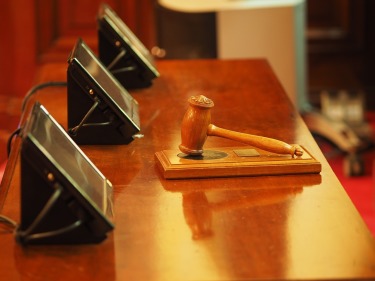
The Madras High Court has ruled that residential properties cannot be converted into prayer halls without prior authorisation from government authorities. The decision came in response to a petition filed by a pastor seeking to overturn an order sealing his house.
Justice N Anand Venkatesh delivered the judgement while hearing a case brought by Pastor L Joseph Wilson from Kodavasal in Tiruvarur district. Wilson had challenged a 2024 order issued by the jurisdictional tahsildar, which sealed his property and barred him from holding prayer meetings there.
Wilson runs the Word of God Ministries Trust, which was established in 2007. He purchased the property in question in 2023 and began holding regular prayer gatherings with family members, relatives, and neighbours. Later that year, ownership of the property was transferred to the trust’s name.
Legal issues arose following complaints from locals about the gatherings. The police subsequently conducted an enquiry. Wilson later applied for building permission and plan approval to construct a church, but his application was rejected by the district collector. The tahsildar then issued a notice directing him to stop operating the prayer hall within ten days or face legal action.
In court, Wilson offered an undertaking that he would conduct prayers peacefully, without using loudspeakers or microphones. However, Justice Venkatesh found this offer insufficient.
“This undertaking given by the petitioner falls short of the undertaking that was expected by this court. Mere non-usage of loudspeakers and microphones will not solve the issue. The crux of the matter is that the petitioner cannot convert a house into a prayer hall to conduct prayer meetings,” the judge observed.
The court referred to its earlier ruling in T Wilson v District Collector, Kanyakumari District (2021), which established that religious rights are not absolute and that gatherings attracting large crowds require appropriate permissions under applicable regulations.
“It is clear from the above judgement that conducting prayer meetings in a prayer hall requires obtaining permission from the authority concerned under the relevant rules. Hence, the petitioner cannot, as a matter of right, operate a prayer hall without obtaining such permission,” Justice Venkatesh noted.
The district collector argued that Wilson could not legally use the property as a prayer hall without permission and that the meetings were causing disturbance to neighbouring residents.
The court ordered the tahsildar to remove the seal from Wilson’s property, but only on the condition that it would not be used as a prayer hall. Should Wilson wish to use the property for such purposes, he must first secure the appropriate permission from the district collector.
The ruling underscores that official approval is mandatory before converting residential properties for religious use, regardless of any assurances regarding peaceful conduct or noise control.
Government advocate T M Rajangam represented the authorities in the case.




